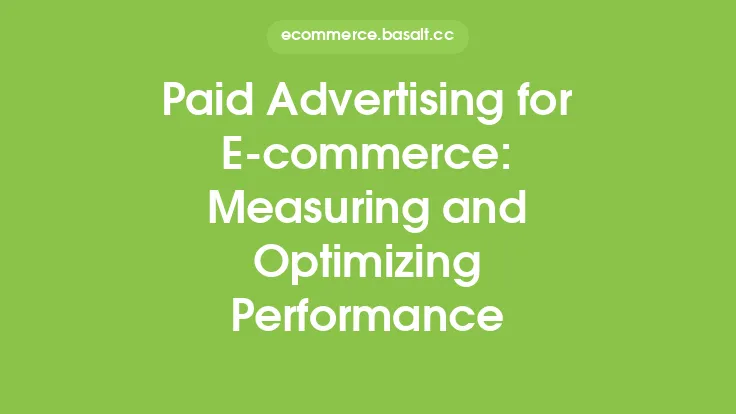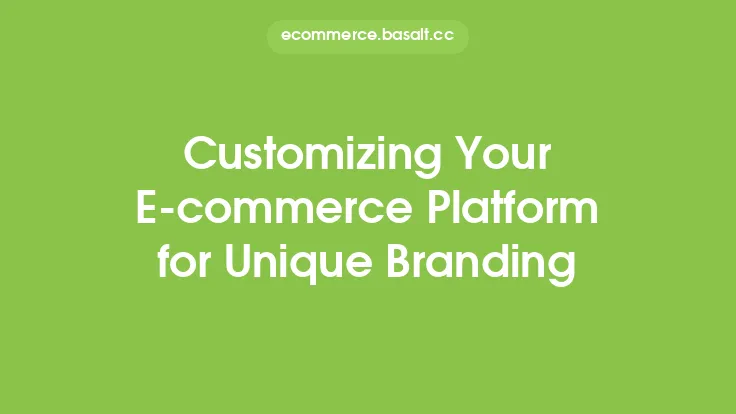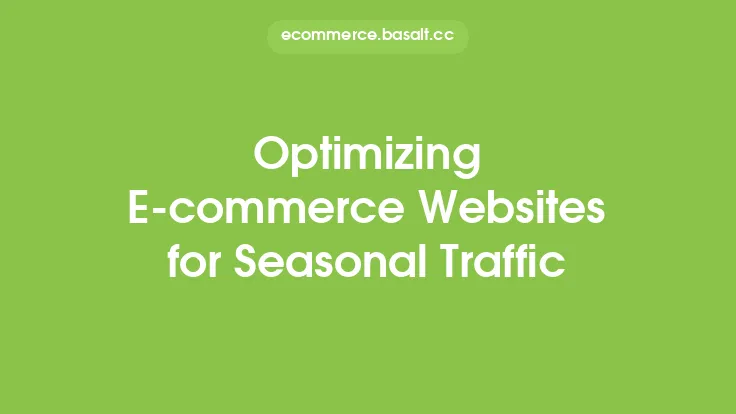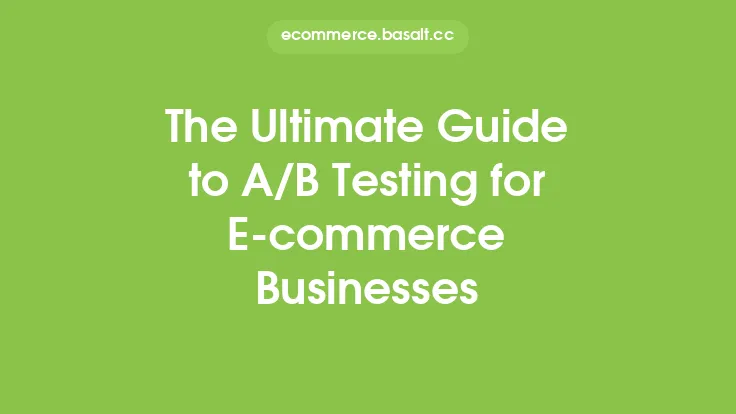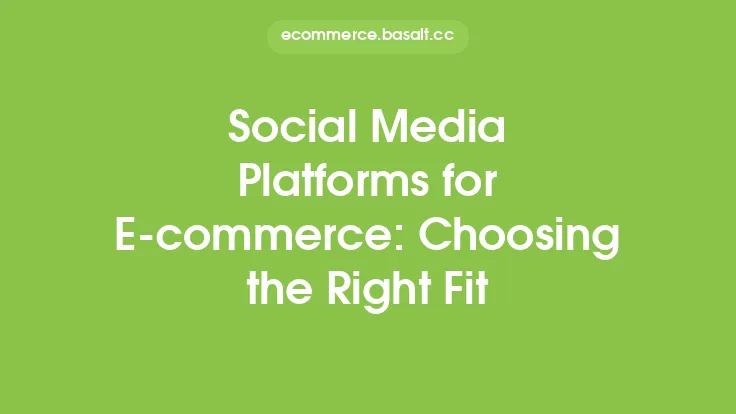In today's digital age, e-commerce platforms have become the backbone of online businesses, providing a medium for companies to showcase and sell their products to a global audience. However, with the increasing competition in the e-commerce space, it's essential for businesses to ensure that their e-commerce platform performs optimally to provide a better user experience. A well-performing e-commerce platform can make all the difference in attracting and retaining customers, driving sales, and ultimately, revenue.
Understanding the Importance of E-commerce Platform Performance
E-commerce platform performance refers to the speed, reliability, and overall efficiency of an online store. It encompasses various aspects, including page load times, search functionality, checkout processes, and mobile responsiveness. A slow or poorly performing e-commerce platform can lead to frustrated customers, abandoned shopping carts, and a significant loss of sales. On the other hand, a fast and seamless e-commerce platform can improve customer satisfaction, increase conversions, and drive business growth.
Key Factors Affecting E-commerce Platform Performance
Several factors can impact the performance of an e-commerce platform, including:
- Server and Infrastructure: The quality and capacity of the server, as well as the underlying infrastructure, can significantly impact the performance of an e-commerce platform. Factors such as server location, bandwidth, and storage can all play a role in determining the speed and reliability of an online store.
- Code Quality and Optimization: Poorly written code, unnecessary plugins, and inefficient database queries can all slow down an e-commerce platform. Optimizing code, minimizing HTTP requests, and leveraging caching techniques can help improve performance.
- Image and Media Optimization: Large, unoptimized images and media files can significantly slow down page load times. Compressing images, using lazy loading, and leveraging content delivery networks (CDNs) can help reduce the file size and improve page load times.
- Third-Party Integrations: Integrating third-party services, such as payment gateways, shipping providers, and social media platforms, can add complexity to an e-commerce platform and impact performance. Carefully selecting and optimizing third-party integrations can help minimize their impact on performance.
- Mobile Responsiveness: With the majority of online shoppers using mobile devices, it's essential to ensure that an e-commerce platform is optimized for mobile. A mobile-responsive design, fast page load times, and easy navigation can all contribute to a better user experience on mobile devices.
Best Practices for Optimizing E-commerce Platform Performance
To optimize the performance of an e-commerce platform, businesses can follow several best practices, including:
- Conduct Regular Performance Audits: Regularly monitoring and analyzing the performance of an e-commerce platform can help identify areas for improvement.
- Optimize Images and Media: Compressing images, using lazy loading, and leveraging CDNs can help reduce file sizes and improve page load times.
- Leverage Caching Techniques: Implementing caching techniques, such as browser caching, server-side caching, and CDN caching, can help reduce the load on servers and improve page load times.
- Minimize HTTP Requests: Minimizing HTTP requests by combining files, using sprites, and leveraging CSS and JavaScript compression can help reduce the number of requests made to the server.
- Use a Content Delivery Network (CDN): A CDN can help reduce the distance between users and the server, resulting in faster page load times and improved performance.
- Optimize Database Queries: Optimizing database queries, indexing databases, and leveraging query caching can help improve the performance of an e-commerce platform.
- Use a Fast and Reliable Hosting Service: Choosing a fast and reliable hosting service can help ensure that an e-commerce platform is always available and performing optimally.
Tools and Technologies for Optimizing E-commerce Platform Performance
Several tools and technologies can help businesses optimize the performance of their e-commerce platform, including:
- Google PageSpeed Insights: A tool that analyzes the performance of a website and provides recommendations for improvement.
- GTmetrix: A tool that analyzes the performance of a website and provides detailed reports on page load times, optimization opportunities, and more.
- Pingdom: A tool that analyzes the performance of a website and provides detailed reports on page load times, optimization opportunities, and more.
- Cloudflare: A CDN and security platform that can help improve the performance and security of an e-commerce platform.
- Amazon Web Services (AWS): A cloud hosting platform that provides a range of services and tools to help businesses optimize the performance of their e-commerce platform.
Conclusion
Optimizing the performance of an e-commerce platform is crucial for providing a better user experience, driving sales, and ultimately, revenue. By understanding the key factors that impact performance, following best practices, and leveraging tools and technologies, businesses can ensure that their e-commerce platform is always performing optimally. Whether it's optimizing images, leveraging caching techniques, or using a fast and reliable hosting service, every effort counts in providing a seamless and enjoyable online shopping experience for customers.
